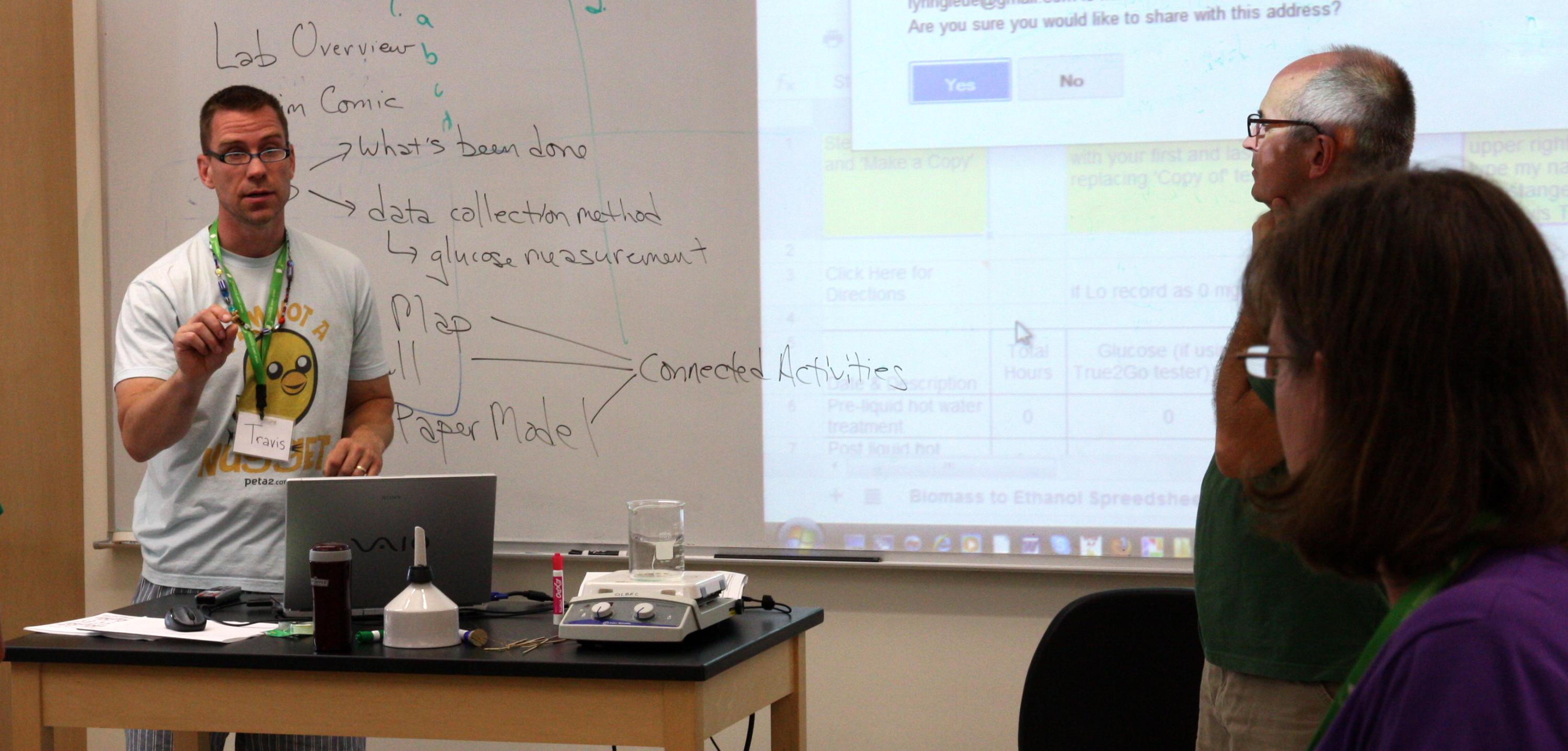
During the summer of 2012, our Research Experience for Teachers (RET) Program expanded to include collaborations between researchers and teachers both at UW-Madison and Michigan State University. We had four teachers working with GLBRC scientists on a range of research and curriculum development projects.
Read on to learn about the activities of each of the 2012 RET participants.
Travis Tangen, a chemistry and biology teacher at Memorial High School in Madison worked with UW-Madison bioenergy chemist Troy Runge to develop an engaging lab sequence that takes students through the process of converting biomass sources, such as sawdust or corn stover, into sugars and then to ethanol. In the process, Travis conducted hundreds of trials comparing different biomass pretreatment options such as heating, grinding, and chemical digestion.
Tammie Niffenegger, an environmental science and chemistry teacher at Port Washington H.S., got her hands dirty collecting data on bioenergy cropping systems trials at Arlington Research Station in Arlington, Wisconsin. Under the guidance of GLBRC ecologists Gregg Sanford and Randy Jackson, Tammie developed an activity in which students interpret and draw conclusions from real data on bioenergy crop traits such as total biomass and carbon sequestration rates.
Marty Green, a middle school earth science teacher at Plainwell Schools in Michigan, had the rare opportunity to investigate how different bioenergy crops responded to this summer's extreme drought. He worked with GLBRC ecologist Steve Hamilton at Kellogg Biological Station in Hickory Corners, Michigan, to summarize thousands of data points to reveal how crops like corn and switchgrass respond to unusually dry soil conditions in cropping trials. Marty is developing a classroom activity in which students draw conclusions from some of the graphs he produced in his research.
Kate Arnold teaches economics and environmental studies at Middleton High School in Wisconsin. She worked with GLBRC researchers, computer programmers and education researchers to develop an educational computer game in which students take on the role of bioenergy farmers to balance economic and environmental tradeoffs. Kate will be piloting the game with her students this spring. Read more about the project in our recent feature story.
To get in touch with one of these RET participants or learn more about the program, please email Leith Nye at lnye@glbrc.wisc.edu.
More information about our RET Program can be found on our programs page. Applications for our 2013 program will open in late winter. To be notified when applications are open, sign up for our email newsletter.